The Business of Fair Trade

The words fair trade get thrown around a lot. But what does it really mean? Can for-profit businesses really be a part of helping to alleviate poverty and advocate for human rights?
Continue Reading ›Rwandan Genocide: Where Were God’s People?
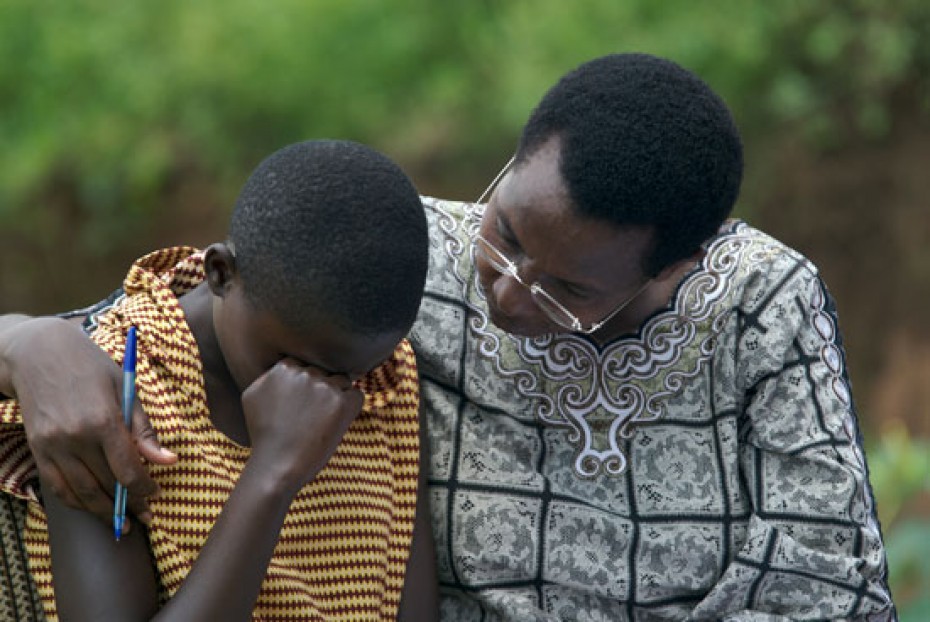
At the time of the Rwandan genocide in 1994, Gary Haugen, a senior trial attorney for the U.S. Department of Justice, was given an assignment to serve as the Officer in Charge of the U.N.’s genocide investigation in Rwanda.
He had seen a lot of injustice in the past, working to combat human rights abuses around the world. And in Rwanda, he stood amid it. He led a team in gathering evidence against those who perpetrated the genocide.
He didn’t just fight a legal battle from afar; he stood at the sites of mass murder and mass graves, and looked into the ugliness of this world.
And his response to it was quite surprising to me.
When you are standing in a mass grave in Rwanda, the question that came to my mind was not the question that was coming to everyone else’s mind perhaps. I’ve had people ask me, Where was God in the midst of all of this?’ But I could sense, at least from Scripture, what I knew of my heavenly Father, was that I knew where God was: He was right in the midst of all that incredible suffering. The more relevant question for me was, ‘Where are God’s people?’
What I also saw so clearly was the biblical mandate, because when you go through Scripture with an eye for that, all of a sudden there are these very clear commands: Micah 6:8, ‘He has told you, O man what is good and what the Lord requires of you, but to do justice, to love mercy, to walk humbly with your God,’ or Isaiah 1:17, ‘Seek justice, rescue the oppressed, defend the orphan, plead for the widow.'”
– Excerpted from RELEVANT magazine, “A Call to Justice,” March/April 2007 with permission.
Rather than raging at God, like I sometimes feel tempted to do, Haugen knew that this was a matter for the church. It was our responsibility to do justice, to rescue the oppressed, to plead for the widows and orphans.
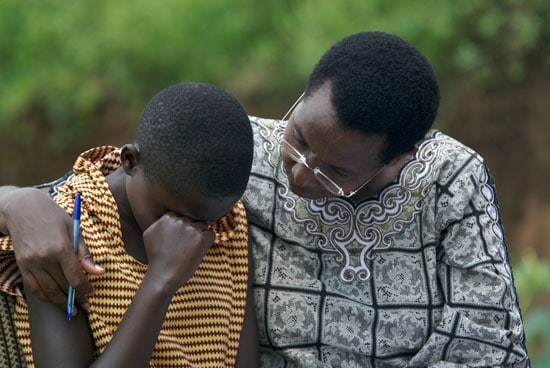
Laurent Mbanda is the Vice President of the Africa region for Compassion and also a native Rwandan. He wrote the book, Committed to Conflict: The Destruction of the Church in Rwanda, about the church in Rwanda and how it was involved in the genocide.
Rwandans had a common saying: ‘God spends the day somewhere else, but spends the night in Rwanda.’ To many, God left Rwanda on 6 April 1994 and did not come back until the final defeat of the Rwandan army by the RPF soldiers.
But not only did God seem to have left, some church leaders seemed to have allowed, blessed and even participated in the slaughter.
According to Mbanda, a history of prejudice and political involvement in the Rwandan church, dating back to Belgian colonial times and early Christian missionaries, set the stage for the unthinkable. Where were God’s people in the Rwandan genocide? Unbelievably, some were right there, supporting it.
What did Haugen do in response to what he saw?
I would have despaired. But fueled by what he saw, Haugen knew what he must do. He knew it was the church’s responsibility, our responsibility, not to wink at the injustices of the world, but to stop them. He founded the International Justice Mission, an organization that secures justice for victims of slavery, sexual exploitation and violent oppression in 12 countries around the world. This organization partners with us to help protect children who might not otherwise have someone to speak up for them.
What is your response when you read about the ugliness of the world? Do you want to close your eyes or just despair? It sure is tempting. But rather than giving up, Haugen went to the Scriptures to see what God’s call was on him, and he obeyed. He is now mobilizing the Church to be the ones who don’t look away, but who show up when the world needs it most.
Photo by Phoebe Graves
We originally published this post on April 6, 2009, the 15th anniversary of the genocide in Rwanda.
Continue Reading ›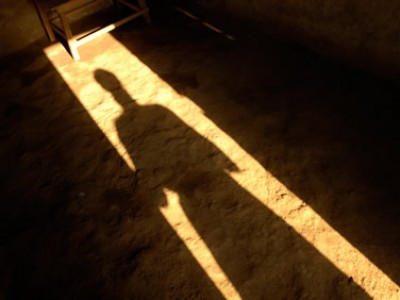
Today Is the Day to Do Something About Human Trafficking
How can we (and so many people we know) be so overwhelmed and so outraged about human trafficking and have it still exist in our world today?
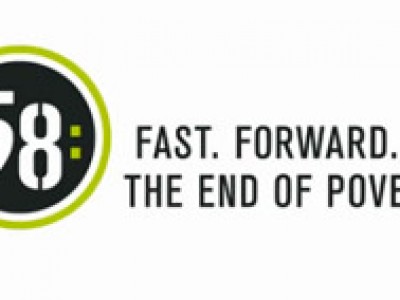
11 Reasons Extreme Poverty Will Disappear by 2035
Is eliminating extreme poverty possible or is it heresy? Is it just a matter of interpretation or a matter of priorities?
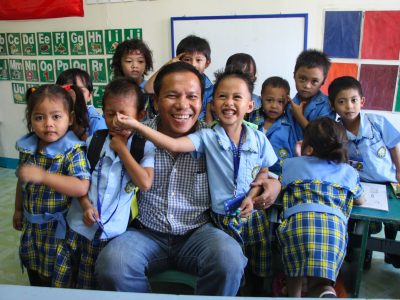
The Value of Churches Working Together
Compassion Philippines is partner to 320 evangelical churches from 17 Christian denominations. While normally denominations such as Baptists and Pentecostals in the Philippines would not see eye to eye in matters of doctrine and practice, our church partners work together very well regardless of denominational differences.
Assisting Refugees in Thailand With International Justice Mission
With an internal war in Myanmar tearing at the country for more than 50 years, refugees have been pouring into northern Thailand, seeking some way to survive. In response to this need, Compassion and International Justice Mission have partnered to help support the refugees as they begin a new life.
Human Trafficking in Thailand
A middle-aged woman was riding her motorbike roaming the streets of Nongki village. Everything about her appearance looked ordinary and did not illicit any suspicions. She looked around. Suddenly, her eyes fixed on one small house near a barren farmland.
The woman drove to the house and greeted the young girl who was sitting at the front of the house alone. She asked the young girl questions that are typically asked among the people in this area.
“Do you want a new cell phone?” “Do you want to live in a bigger and nicer house?”
The young girl was surprised by the lady’s questions and remained silent.
“If you are interested in these things, I can give them all to you. All you have to do is come work with me. You will earn a lot of money so that you can have pretty clothes to wear and you will have a nice car to drive. It is a very easy job. C’mon. Trust me and come with me.”
“No, thank you,” replied the young girl, Supattra, a 14-year-old Compassion-assisted child. This situation is repeated over and over. (more…)
Throw-Aways
I’ve been putting off writing this post. There are some things that are just easier not to think about.
They’re called “throw-aways,” people whom the world has no use for. (more…)


